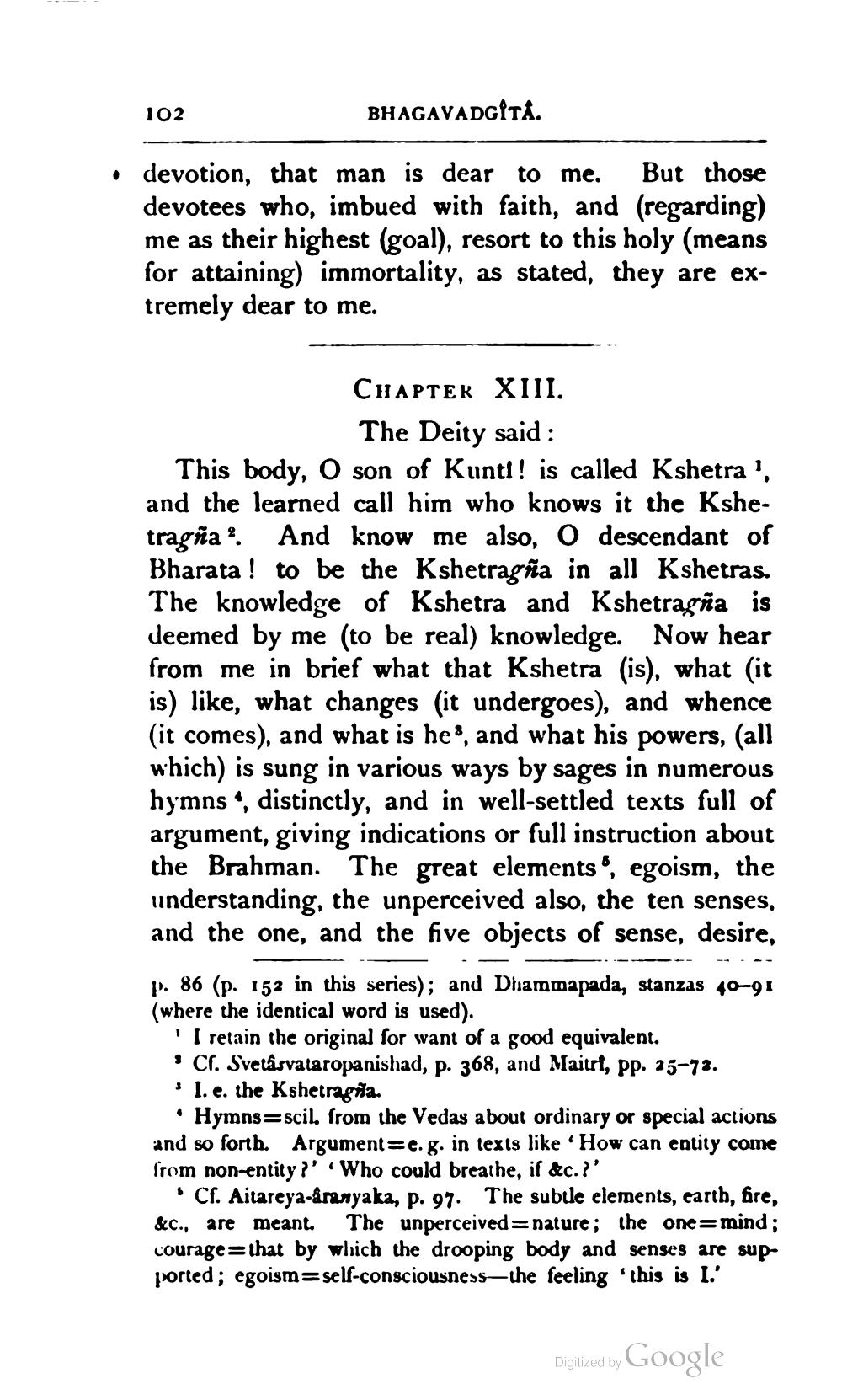________________
102
BHAGAVADGTTÅ.
devotion, that man is dear to me. But those devotees who, imbued with faith, and (regarding) me as their highest (goal), resort to this holy (means for attaining) immortality, as stated, they are extremely dear to me.
Chapter XIII.
The Deity said : This body, O son of Kunti! is called Kshetra', and the learned call him who knows it the Kshetragña?. And know me also, O descendant of Bharata! to be the Kshetragña in all Kshetras. The knowledge of Kshetra and Kshetragña is deemed by me (to be real) knowledge. Now hear from me in brief what that Kshetra (is), what it is) like, what changes (it undergoes), and whence (it comes), and what is he?, and what his powers, (all which) is sung in various ways by sages in numerous hymns “, distinctly, and in well-settled texts full of argument, giving indications or full instruction about the Brahman. The great elements", egoism, the understanding, the unperceived also, the ten senses, and the one, and the five objects of sense, desire, p. 86 (p. 152 in this series); and Dhammapada, stanzas 40-91 (where the identical word is used).
'I relain the original for want of a good equivalent. • Cl. Svetâsvataropanishad, p. 368, and Maiuri, pp. 25-72. * I.e. the Kshetragala.
• Hymns=scil, from the Vedas about ordinary or special actions and so forth. Argument=e. g. in texts like · How can entity come from non-entity?' Who could breathe, if &c. ?'
. Cf. Aitareya-Aranyaka, p. 97. The subule elements, earth, fire, &c., are meant. The unperceived=nature; the onc=mind; courage=that by which the drooping body and senses are supported; egoism=self-consciousness-the feeling this is I.'
Digitized by Google




